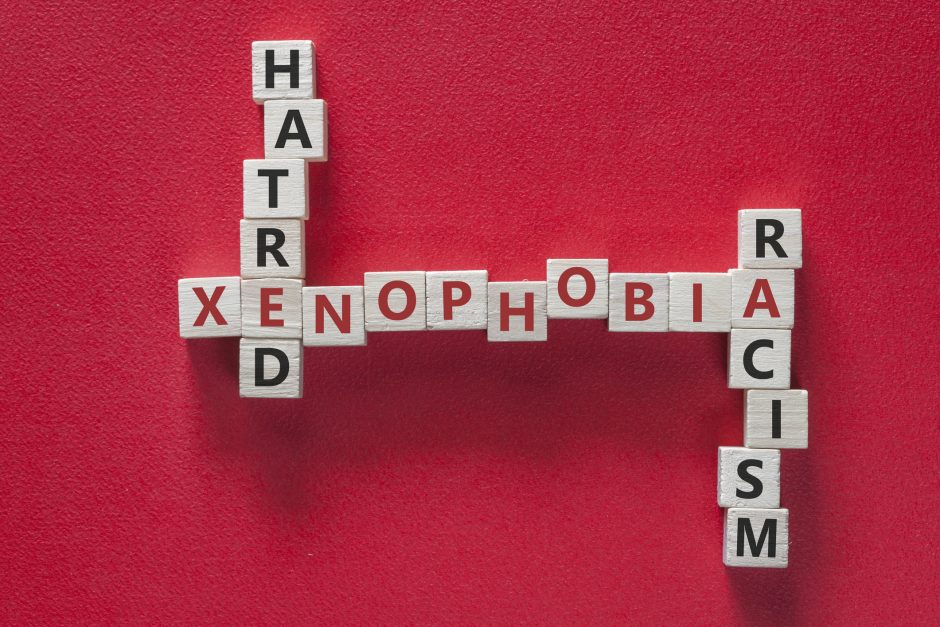The views expressed in our content reflect individual perspectives and do not represent the authoritative views of the Baha'i Faith.
Baha’is believe in the commonality and unity of all human beings. Baha’u’llah, the prophet and founder of the Baha’i Faith, wrote “It beseemeth all men, in this Day … to establish the unity of all mankind.”
That lofty, noble ambition, which Baha’is all over the world work toward, has become a much more visible reality across the world since Baha’u’llah’s revelation began in the mid-19th century.
International organizations, global trade and travel, and worldwide approaches to problem-solving have flourished since then. The UN’s Universal Declaration of Human Rights, first adopted in 1948, set a new planetary standard for the rule of law and the rights of all people. International migration has increased, as the barriers to human movement and freedom have diminished. The education and emancipation of women has grown across the globe. Inter-governmental cooperation, treaties, negotiation, and peace-keeping have all risen to unprecedented levels. The world has contracted into a neighborhood.
RELATED: How Does the Baha’i Faith Propose to Unify the World?
But these advances have also produced a backlash. Old patterns, habits, and hatreds die hard, and a virulent reaction has arisen against this new, emerging spirit of world unity and global interchange. One of the most reactionary and retrogressive of those movements, called the “Great Replacement theory,” was first popularized a little more than a decade ago in France – ironically, in the European country that calls itself the “Cradle of Liberty” and the bastion of the Western Enlightenment.
How the Great Replacement Theory Began
In 2011, a French writer named Renaud Camus published an alarmist book titled Le Grand Remplacement (The Great Replacement) which accused immigrant Muslims of destroying France’s laws and traditions.
It broke no new ground. In the United States, Alexander Hamilton and his Federalist party led the American colony’s first anti-immigrant movement during the 1790s – even though Hamilton himself had immigrated to the U.S. from the island of Nevis in the Caribbean. The term for this kind of anti-immigrant sentiment, nativism, was first used in the mid-1800s in the U.S. During that period, the term did not mean Native Americans as we think of America’s Indigenous peoples today, but instead falsely referred to the descendants of the first European colonizers as natives.
Since then, nativist movements in many parts of the world have clung to one decrepit, factually unsupported argument: that immigrants will eventually take over and ruin a country’s existing culture.
That old xenophobic viewpoint has proliferated ever since immigration began. Anti-immigrant sentiment, often tied to those with a different language, religion, or race, hinges on little actual evidence, instead making an appeal to the ancient reptilian part of the human brain frightened of “the other” and therefore subject to prejudicial manipulation by those with a political agenda.
But in Camus’s case, he took the antiquated argument even further, insisting in his book that the French government, the European Union, the United Nations, and unnamed “liberal global elites” had entered into a secret conspiracy to slowly replace France’s White population with a nefarious pro-immigration technique he called “genocide by substitution.”
Rather than blaming and demonizing the Jews, as Hitler had done, Camus utilized Islamophobia, making Muslims his primary scapegoat – but the general fear of “foreigners taking over” remained the same. Camus’s book contained a simplistic and historically incorrect conclusion that has become yet another neo-Nazi trope: “A people was here, stable, had been occupying the same territory for fifteen or twenty centuries. And suddenly, very quickly, in one or two generations, one or several other peoples substitute themselves for him. He is replaced, it is not him anymore.”
Worddisk defines this simplistic idea, often called “White genocide” as:
… a political myth based on pseudoscience, pseudohistory, and ethnic hatred, driven by a psychological panic often termed “white extinction anxiety.” There is no evidence that white people are dying out or facing extermination. The purpose of the conspiracy theory is to justify a commitment to a white nationalist agenda in support of calls to violence.

The Murderous Results of the Great Replacement Theory
In the decades before and after Camus’s book, that conspiracy theory has spread, becoming violent, dangerous, and deadly. David Lane, an American neo-Nazi white supremacist who died in prison in 2007, became an early adopter of the Great Replacement theory even before Camus, disseminating it on the web, in self-published books of his own, and in his criminal actions, including the murder of Jewish radio talk show host Alan Berg in Denver.
But after the Camus book codified and popularized the theory, several White supremacist domestic terrorists and mass murderers – including Robert Bowers, the gunman who killed 11 people and injured six in an attack on the Tree of Life synagogue in Pittsburgh, Pennsylvania in 2018 – have made public claims, accompanied by horrific violence, that they believe in the Great Replacement concept. Before the mass murder at the synagogue, Bowers maintained that Jews were deliberately encouraging and funding Mexican and Central American migrant caravans into the United States as part of a shadowy conspiracy to “replace” the White race.
Brenton Tarrant, who killed 51 people and injured 49 when he attacked the Al Noor Mosque and Linwood Islamic Center in Christchurch, New Zealand in 2019, named his terrorist manifesto The Great Replacement, a direct reference to Camus’s book.
Patrick Crusius, the alleged shooter in the 2019 El Paso mass murder of 23 Walmart shoppers, posted an online manifesto titled The Inconvenient Truth which cited Camus’s theory and a “Hispanic invasion of Texas” that would generate “cultural and ethnic replacement” of White Americans. He also expressed support for “the Christchurch shooter” minutes before his attack.
Despite the specious, unscientific origins of the Great Replacement theory, and despite its frequent citation by mass murderers and terrorists, some politicians throughout the Western world have begun to promote the theory and use it to their advantage. In France, in Germany, in Greece, in Spain, in Canada, in the United States and in many other countries, several elected officials or candidates for high office have made public statements in support of the Great Replacement theory, treating it as though it were an established scientific fact and using it as a scare tactic to rally their supporters.
RELATED: Causes of Difference and Division – Us and Them
The Contrast Between Globalism and the Great Replacement Theory
Historians and social scientists agree – we live in an age of globalization. The world has shrunk; communication is instantaneous; commerce and trade have gone global; national borders are increasingly porous. Globalization, by its very nature, leads to more exchange and communication between formerly separate peoples and cultures, promoting more common values and making many people start to consider themselves world citizens. More and more, we have come to a scientific consensus that the entire natural environment on Earth is linked in one great chain of being – and this realization has created an upsurge in planetary patriotism rather than loyalty defined by man-made political boundaries. Overall, that trend toward world citizenship has made jingoism and extreme nationalism dwindle, and devotion to one nation less important than an affinity for the entire Earth.
The Baha’i teachings anticipated, proclaim, and encourage this changing focus. Baha’u’llah wrote:
O contending peoples and kindreds of the earth! Set your faces towards unity, and let the radiance of its light shine upon you. Gather ye together, and for the sake of God resolve to root out whatever is the source of contention amongst you. Then will the effulgence of the world’s great Luminary envelop the whole earth, and its inhabitants become the citizens of one city, and the occupants of one and the same throne.
Historically, humanity has evolved and matured in one consistent direction, toward greater and greater levels of complexity – in science, in technology, in education, in our artistic and intellectual pursuits, in our business and organizational structures, and in our governance. A mass of anthropological evidence proves that at the dawn of the human era we began by organizing ourselves as extended families, but then quickly moved to a more tribal structure in all the places where people existed. Tribes eventually gave way to city-states, fiefdoms and kingdoms; and during the Enlightenment we first organized ourselves into broader national entities that incorporated many ethnicities, tribes, and classes.
Now, the Baha’i teachings assert, we have reached the stage in our collective development when only an advanced system of global governance can solve our increasingly worldwide issues and problems. But what does that mean? Should we move globally, as the European Union has attempted to do regionally, to de-emphasize national borders and adopt more open immigration policies? Or should we erase all borders and allow all the Earth’s peoples to vote with their feet? In the next essay in this series, we’ll see what the Baha’i teachings have to say about those pressing questions.
















Comments
Sign in or create an account
Continue with Googleor